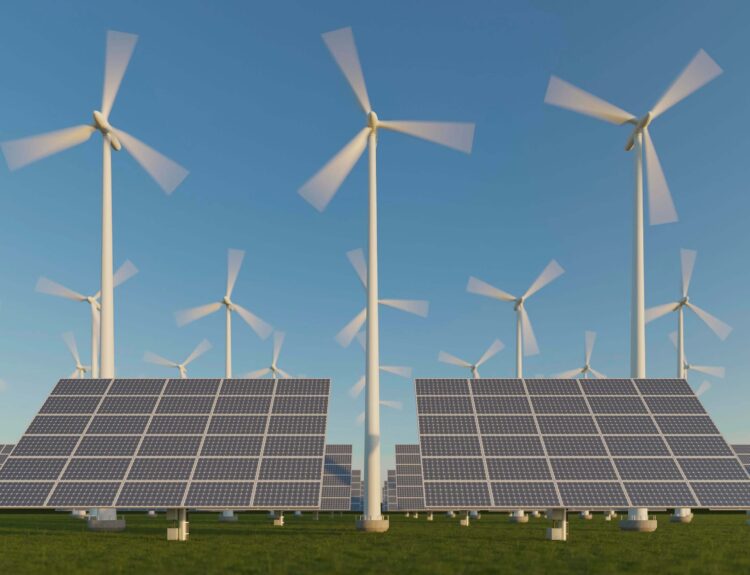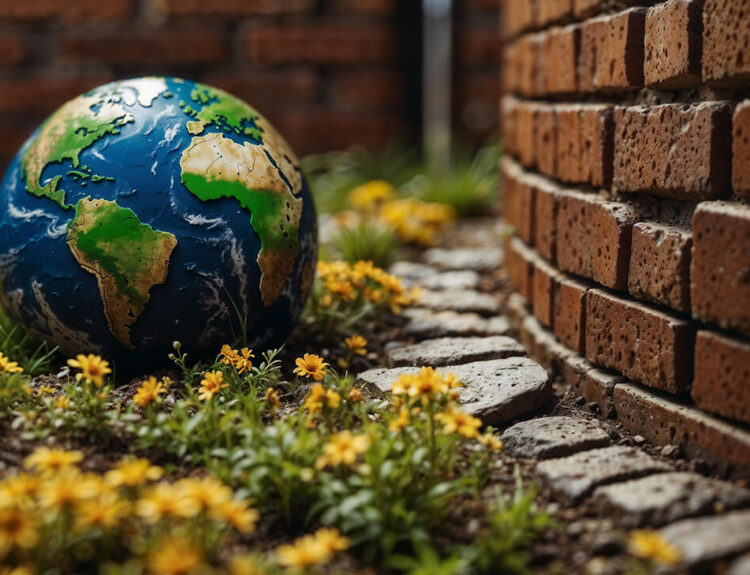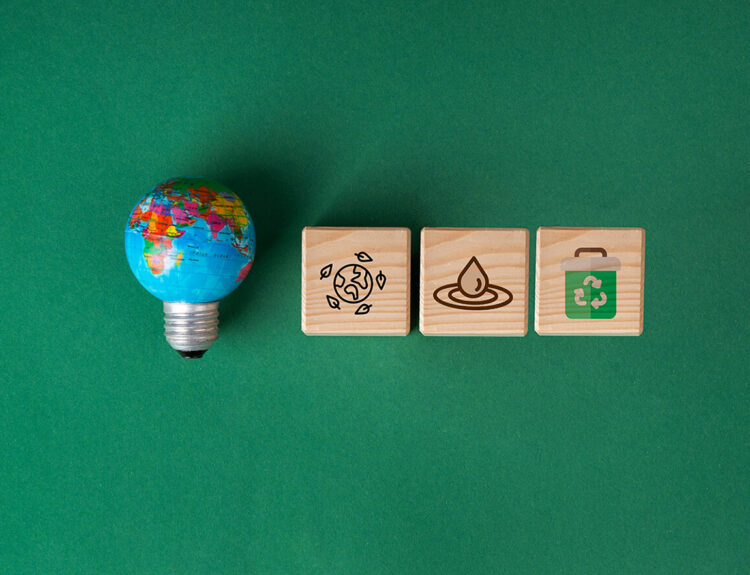Sustainability is one of the biggest challenges we face in the modern world. Encompassing environmental, economic, and social dimensions, sustainability aims to meet today’s needs without compromising the ability of future generations to meet their own needs. In this context, sustainable energy systems and sustainable development strategies are of great importance. Europe plays a leading role globally in sustainability. This article will discuss the concept of sustainability, the sustainability efforts of European countries, and sustainable energy systems and development.
The Concept of Sustainability
Sustainability is often evaluated through three main components: environmental sustainability, economic sustainability, and social sustainability. These components interact with each other and form the basis of a balanced development process.
- Environmental Sustainability: This includes efforts to conserve natural resources, maintain ecosystem balance, and preserve biodiversity. Key topics in this context include reducing energy consumption, managing waste, protecting water resources, and combating climate change.
- Economic Sustainability: This refers to achieving long-term economic growth and development. It is supported by efficient use of resources, innovation, and technological advancements. Sustainable economic models not only meet today’s needs but also ensure the welfare of future generations.
- Social Sustainability: This aims to improve the welfare and quality of life for all segments of society. It includes elements such as education, healthcare, equality, social justice, and human rights. Social sustainability aims to create an inclusive and fair societal structure.
Sustainability Efforts in Europe
Europe has developed various policies and practices for sustainability. The European Union (EU) has implemented numerous strategies and regulations that promote sustainable development. This section will examine prominent sustainability efforts in Europe.
European Green Deal
The European Green Deal is a plan that sets the EU’s goal to become carbon neutral by 2050. This deal is the EU’s sustainable growth strategy and aims to balance economic growth with environmental protection. Its main components include:
- Clean Energy: Various incentives and investments are made to increase the use of renewable energy sources and reduce fossil fuel consumption.
- Circular Economy: Policies encouraging the reuse and recycling of resources have been developed. This aims to reduce waste and minimize the consumption of natural resources.
- Biodiversity and Ecosystem Protection: Various projects are implemented to protect natural areas, increase biodiversity, and sustainably manage ecosystems.
- Sustainable Agriculture and Food Systems: Policies are developed to reduce the environmental impacts of agricultural production, promote organic farming, and prevent food waste.
Sustainable Cities and Communities
Efforts to create sustainable cities and communities are also of great importance in Europe. These efforts include improving urban energy efficiency, enhancing transportation systems, and preserving green spaces. Examples include:
- Copenhagen, Denmark: Recognized as one of the greenest cities in the world, Copenhagen aims to become carbon neutral by 2025. The city widely uses bicycle paths and rapidly increases investments in renewable energy.
- Freiburg, Germany: A pioneer city in sustainability, Freiburg stands out with its energy efficiency, renewable energy use, and environmentally friendly transportation systems.
- Amsterdam, Netherlands: Known for its sustainable transportation and energy solutions, Amsterdam promotes the use of electric vehicles and bicycles and leads in renewable energy investments.
Sustainable Energy Systems
Sustainable energy systems are developed to reduce the environmental impacts of fossil fuels and ensure energy security. Europe has made significant progress in this area. Increasing the use of renewable energy sources, improving energy efficiency, and developing energy storage technologies are key elements of sustainable energy systems.
Renewable Energy Sources
Renewable energy forms the backbone of sustainable energy systems. Europe is a global leader in the use of renewable energy sources. Various renewable energy sources, such as solar energy, wind energy, hydroelectric energy, and biomass energy, are widely used in Europe.
- Solar Energy: Investments in solar energy are rapidly increasing in Europe. Countries like Germany, Spain, and Italy are making significant investments to increase their solar energy capacity.
- Wind Energy: Europe is a global leader in wind energy production. Denmark, Germany, and the UK continuously increase their wind energy capacities.
- Hydroelectric Energy: Countries like Norway and Sweden play a significant role in hydroelectric energy production. This energy source stands out with its low carbon emissions and high energy efficiency.
- Biomass Energy: Europe also promotes the use of biomass energy. Agricultural waste, forest residues, and organic waste are used for energy production.
Energy Efficiency
Energy efficiency is a crucial component of sustainable energy systems. Europe has developed various policies and incentives to increase energy efficiency. Energy efficiency efforts aim to reduce energy consumption and use energy resources more efficiently.
- Building Energy Efficiency: There are various regulations and incentives in Europe to increase the energy efficiency of buildings. The goal is to make new buildings energy-efficient and improve the energy efficiency of existing buildings.
- Industrial Energy Efficiency: Innovative technologies and energy management systems are used to increase energy efficiency in the industrial sector. This not only reduces energy costs but also minimizes environmental impacts.
- Transportation Energy Efficiency: Sustainable transportation solutions, such as electric vehicles and public transportation systems, are encouraged to increase energy efficiency.
Energy Storage Technologies
Energy storage technologies are crucial for the continuity of renewable energy sources and energy supply security. Europe has made significant progress in this area. Energy storage systems are used to balance fluctuations in energy production and ensure energy supply security.
- Lithium-Ion Batteries: Widely used in electric vehicles and renewable energy systems, lithium-ion batteries are notable for their high energy density and long lifespan.
- Hydrogen Energy: Hydrogen energy is used for storing and transporting electricity generated from renewable energy sources. Hydrogen fuel cells offer an innovative solution for clean energy production and storage.
- Pumped Hydro Storage: Pumped hydro storage systems, which have high energy storage capacity, are an effective method for storing energy generated from renewable energy sources and using it when needed.
Sustainable Development
Sustainable development aims to balance economic growth, social welfare, and environmental protection. Europe aims to achieve this balance through sustainable development strategies and policies. This section will discuss important sustainable development efforts in Europe. (For an article on sustainable development, I recommend you read the article Sustainable Development.)
Europe 2020 Strategy
The Europe 2020 Strategy is a plan that sets the EU’s sustainable development goals. This strategy aims to achieve smart, sustainable, and inclusive growth. Its main targets include:
- Employment: Ensuring that 75% of the working-age population is employed.
- Research and Development: Allocating 3% of GDP to research and development activities.
- Climate Change and Energy: Reducing greenhouse gas emissions by 20% compared to 1990 levels, increasing the use of renewable energy to 20%, and improving energy efficiency by 20%.
- Education: Reducing school dropout rates below 10% and increasing the higher education graduation rate to 40%.
- Poverty and Social Exclusion: Reducing the number of people at risk of poverty and social exclusion by 20 million.
United Nations Sustainable Development Goals
The United Nations Sustainable Development Goals (SDGs) consist of 17 goals that promote sustainable development globally. Europe shapes its sustainability policies by adopting these goals. The main objectives of the SDGs in Europe include:
- Ending Poverty: Ending poverty in all its forms everywhere.
- Zero Hunger: Ending hunger, achieving food security, and promoting sustainable agriculture.
- Good Health and Well-being: Ensuring healthy lives and promoting well-being for all at all ages.
- Quality Education: Ensuring inclusive and equitable quality education and promoting lifelong learning opportunities for all.
- Gender Equality: Achieving gender equality and empowering all women and girls.
Sustainable Development Projects
Sustainable development projects in Europe aim to achieve balanced development in economic, social, and environmental areas. These projects provide innovative solutions in various sectors to contribute to sustainable development goals.
(For an article on sustainable development goals, I recommend you read the article Sustainable Development Goals.)
- Sustainable Agriculture Projects: Sustainable agriculture practices are encouraged in Europe, and organic farming projects are supported. These projects aim to reduce environmental impacts in agricultural production and ensure food security.
- Green Transportation Projects: Green transportation projects, such as electric vehicles, public transportation systems, and bicycle paths, aim to increase energy efficiency and reduce carbon emissions.
- Energy Efficiency Projects: Various energy efficiency projects are implemented to increase the energy efficiency of buildings and reduce energy consumption in the industrial sector.
Future Perspectives
Europe’s sustainability efforts will continue to play a significant role in the future. Innovative solutions and technologies are being developed to achieve sustainable development goals, with a focus on increasing energy efficiency and renewable energy use. Europe is expected to maintain its global leadership in sustainability in the future.
- Technological Innovations: Innovative solutions will continue to be developed in renewable energy technologies, energy storage systems, and energy efficiency.
- Policy and Regulatory Frameworks: Stricter policies and regulatory frameworks will be implemented in sustainability, with new incentives and supports to achieve sustainable development goals.
- International Cooperation: Europe will increase its cooperation with other countries in sustainability and contribute to global sustainable development goals.
Sustainability is an important issue that needs to be addressed through its environmental, economic, and social dimensions. Europe plays a leading role globally with its sustainability efforts and sustainable energy systems. In the future, innovative solutions and technologies will continue to be developed to achieve sustainable development goals, and stricter policies and regulatory frameworks will be implemented in sustainability. This will ensure that future generations inherit a more livable world.






